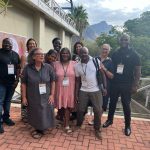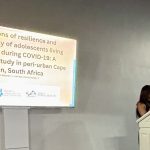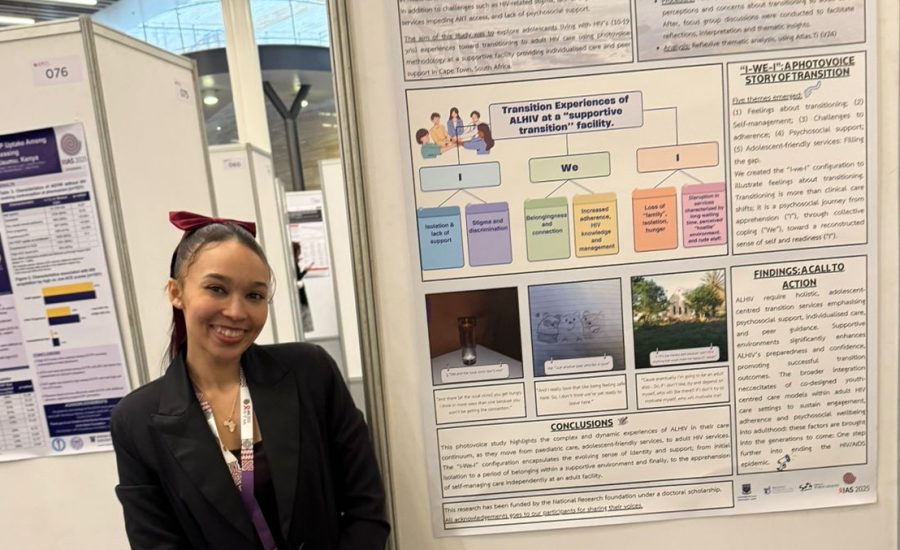
The promises and pitfalls of working with a co-design approach for advancing health and gender equality: Perspectives from programme implementers, public health researchers and funders
7 August 2025
Reflections of resilience and vulnerability of adolescents living with HIV during COVID-19: A photovoice study in peri-urban Cape Town, South Africa
25 August 2025Reflections 2025 International AIDS Society Conference: Finding belonging, building resilience, and reimagining a future in research.
Final Year PhD candidate Charné Petinger reflects on her experience presenting at IAS 2025 in Kigali, Rwanda, where she showcased her participatory research with adolescents living with HIV. In this piece, she shares key lessons learned from the global HIV conference, which emphasizes the importance of community-led approaches, innovation and resilience- and offers a powerful reminder that person-centred, equity-driven research belongs at the heart of all public health work.
written by:
Charné Petinger
I recently had the privilege of attending the 2025 International AIDS Society (IAS) Conference on HIV Science in Kigali, Rwanda, where I presented a poster on my photovoice study conducted with adolescents living with HIV (ALHIV) in Cape Town. The study aimed to elevate their voices and experiences in navigating the transition to adult care: placing their realities at the heart of a global scientific stage.
At first, I felt out of place, intimidated by the calibre of research and critical engagement. As I shared, listened and responded to the delegates’ thought-provoking questions, I realized: I actually belong here. I was not just presenting findings, I was contributing to science in a way that is participatory, grounded and deeply human. My role was not only to share knowledge, but to amplify the voices of young people whose stories often go unheard.
The conference’s core message, “we will not go back”, resonated throughout and reflects the abovementioned call for human-centred research. It called for resilience, innovation and bold community-driven action in the face of funding cuts and persistent inequality. Key discussions focused on long-acting injectables, mHealth and Artificial Intelligence (AI), and the need to integrate HIV services into primary healthcare. More importantly, the spotlight remained firmly on community-led approaches as essential for accountability and contextual intelligence. Social determinants, lived experience, and sustainability were not side notes; they were central to every solution.
The main takeaways that I would like to share with the SOPH research community and beyond is this: regardless of our research area, we are all challenged to make our work more person-centred, responsive, and grounded in real-world impact. Moreover, we must ask ourselves: Are we designing research with communities or for them? Are we building systems that will last? These are the steps we can take to help shape a more equitable future.
It was such an honour to be able to share the voices of my participants! I couldn’t have done it without the support of my supervisors, Prof Brian van Wyk and Prof Talitha Crowley. And of course, the University of the Western Cape School of Public Health’s PhD Programme.

